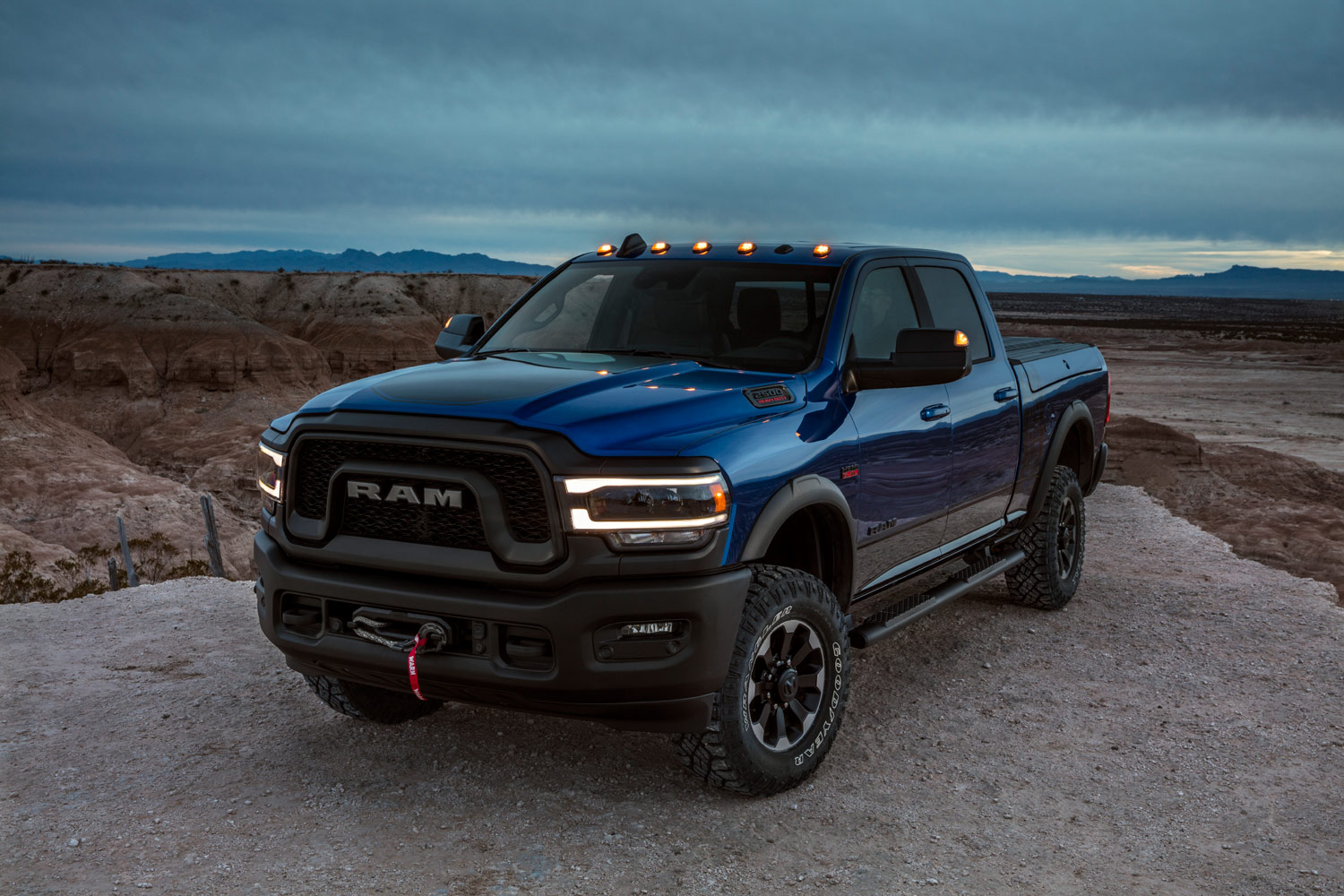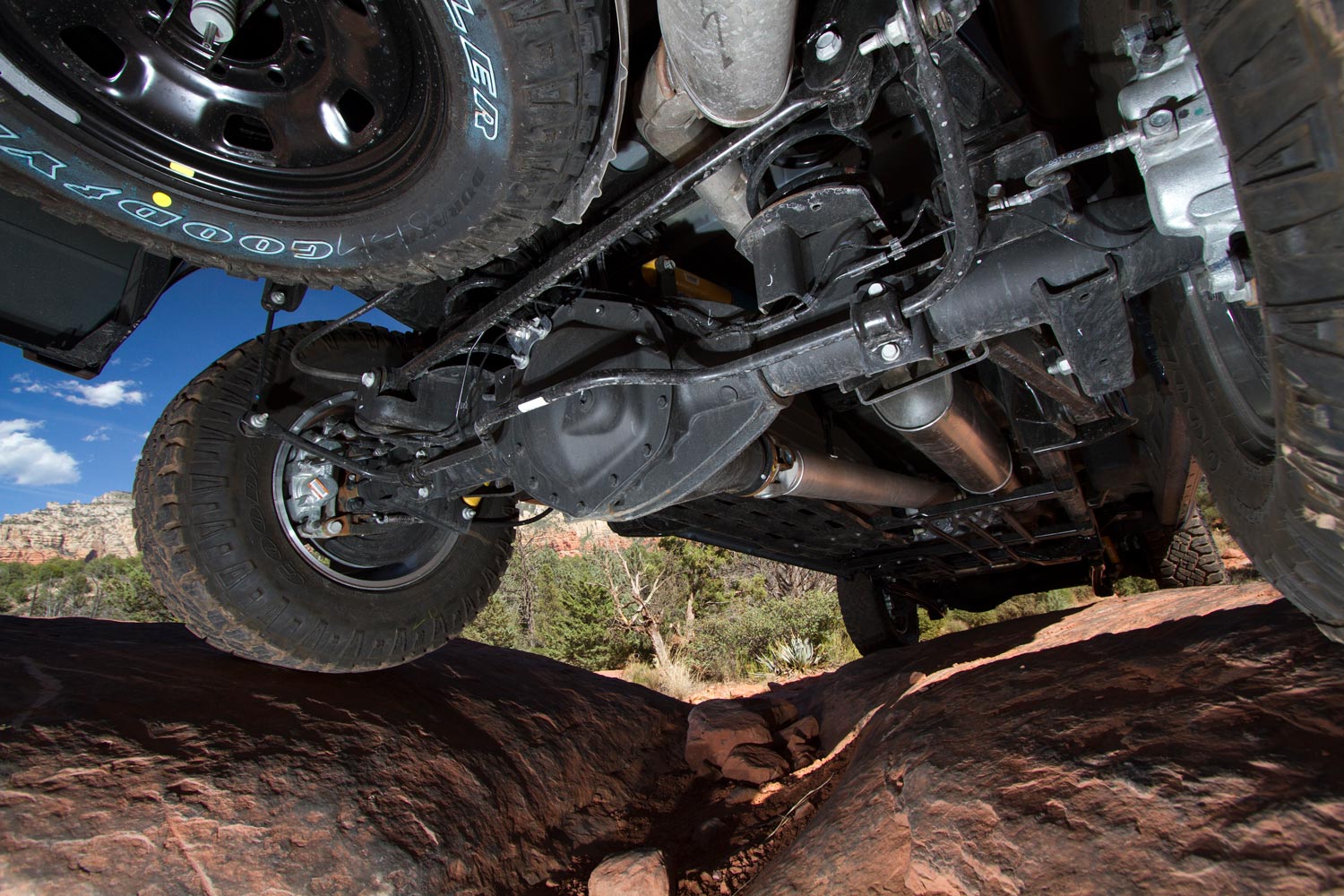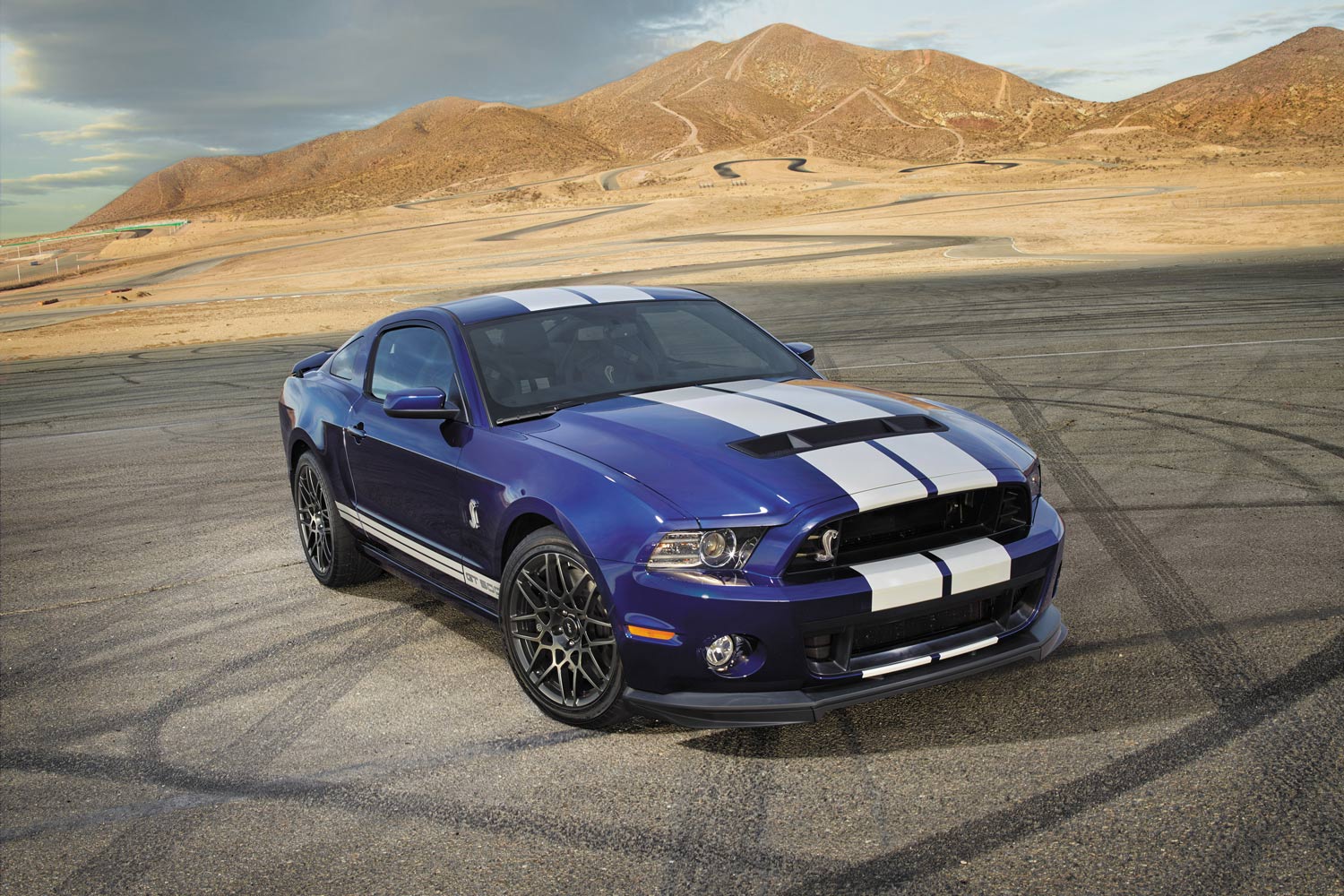What Is a Solid Axle?
You'll get more off-road capability out of a solid axle, but not without compromises.
 Ram
Ram
If you've been shopping for an off-road SUV or truck, you may have heard the term "solid axle." Also known as a "beam," "straight," or "live" axle, this old-school suspension method is simple and durable, providing plenty of wheel travel and articulation. However, it's rare to find a new solid-axle vehicle when independent suspension is so good.
Solid Axle vs. Independent Suspension: What's the Difference?
A solid axle is a rigid beam that connects the right and left wheels. Inside the axle housing are many parts that make the vehicle move forward, like gears and bearings. The axle shaft that transmits the power to the wheel hub is also inside the axle housing. The differential, however, hangs below the axle. The solid axle connects to the vehicle's frame through leaf or coil springs, and sometimes even air springs.
Front and rear axles can be solid, though modern vehicles with both are rare. The 2020 Ram 2500 Power Wagon (pictured in this story) is one such vehicle.
In contrast, with an independent suspension, the gears, bearings, and differential are all attached directly to the vehicle's frame, and the wheels use control arms as attachment points. This arrangement allows each wheel to move independently from the other. Vehicles with independent suspensions generally ride better than their solid-axle equivalents.
 Ram
Ram
What are the advantages and disadvantages of a solid axle?
Whatever happens to a wheel on a solid axle rig, the opposite happens on the other side. So if the right front wheel moves up on a rock, the left front wheel will be pushed down. This action gives solid axle vehicles more traction and articulation than their independent suspension rivals. Further, the axles are robust and not easily damaged. Drivers can abuse solid axles and not worry (as much) about breaking them as they would with an independent setup.
However, solid axles have their drawbacks. They add weight to the vehicle and reduce efficiency. Ground clearance suffers as the differential hangs lower than with independent suspension. When the slow-speed rock crawling ends and the high-speed trail driving begins, keeping a solid axle vehicle in line can be challenging. They don't ride smoothly, and the steering can feel inaccurate when off the highway. Drivers will feel the same uneasiness on the pavement as well.
Which vehicles have solid axles?
You'll find solid rear axles on pickup trucks, but most midsize and full-size trucks will have an independent front suspension for better ride quality. The heavy-duty versions of the Chevrolet Silverado HD and Ford Super Duty have independent front suspensions, but the heavy-duty offering from Ram has a solid front axle.
Most SUVs have independent suspension all the way around, except for the hard-core off-roader Jeep Wrangler. Other off-road-ready SUVs like the Ford Bronco and Mercedes-Benz G-Wagen have solid rear axles. The Land Rover Defender has independent suspension at all four corners.

Solid axles and drag racing
While you might think solid axles are only effective for off-roading and big trucks, those in the drag racing world know better. Performance muscle cars of yore came with a solid rear axle. Solid axles allow for more stable launches as they are good at getting lots of horsepower to the ground and won't break as easily as an independent setup when transferring massive amounts of power.
The Ford Mustang was a rare holdout in the muscle-car arena. Except for some SVT Cobra models, it used a live beam solid rear axle from its birth as a 1964-½ model until a makeover in 2015 when it finally switched to an independent rear suspension.
Written by humans.
Edited by humans.
 Emme Hall
Emme HallEmme Hall loves small convertibles and gets out to the canyons in her 2004 Mazdaspeed Miata whenever she can. You can also find her in the dirt in her lifted (yes, that's right) 2001 Mazda Miata, or racing air-cooled Volkswagens in races like the Baja 1000. She's taken first place twice in the Rebelle Rally — once driving a Jeep Wrangler and then a Rolls-Royce Cullinan the second time. She was also the first driver to take an electric vehicle to the Rebelle Rally when campaigning the Rivian R1T to a top-five finish.
Related articles
View more related articles